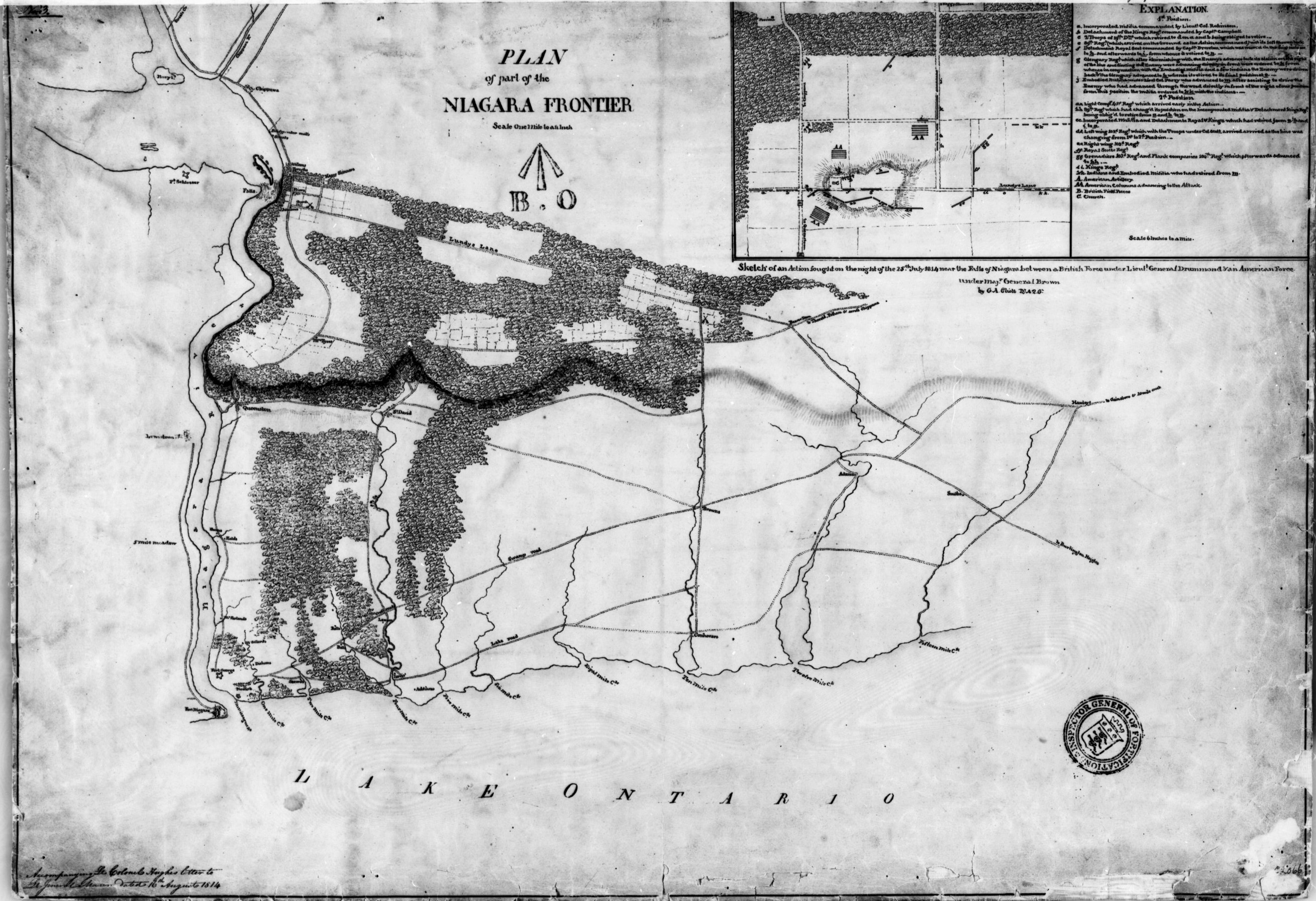The Battle of Lundy's Lane

The Battle of Lundy’s Lane was a turning point in the War of 1812-14. While British reinforcements began arriving in North America following the defeat of Napoleon in Europe, the Americans were pushing to gain control of the Niagara Peninsula with hopes of moving on to York (now Toronto), Kingston and Montreal. Their attempts were thwarted at the Battle of Lundy’s Lane, which stopped the American advance and marked the beginning of the end of the war.
After this fierce and bloody battle, General Brown ordered the American withdrawal southward. The American forces were not expelled from the position they won, but retired voluntarily. The British regained possession of the battlefield, but were in no condition to pursue their enemy. Although both the British and Americans claimed victory, neither side won decisively. Tactically, it was a draw, but strategically, it was a British victory since it stopped the American advance.
In the centre the repeated and determined attacks of the enemy were met by the 89th Regiment, the detachments of the Royals and King’s and the Light Company of the 41st, with the most perfect steadiness and intrepid gallantry, and the enemy was constantly repulsed with heavy loss.
Lieutenant-General Sir Gordon Drummond to Sir George Prevost, Governor-in-Chief of Canada
Our victory was complete, but, alas, this victory gained by exhibitions of bravery never surpassed in this country, was converted into a defeat by a precipitate retreat, leaving the dead, the wounded and captured artillery, and our hard earned honor to the enemy.
Major-General Peter B. Porter to New York Governor Daniel Tompkins
Casualties of the Battle of Lundy’s Lane
British and American forces suffered heavy losses at the Battle of Lundy’s Lane on July 25, 1814 and these were severe in proportion to the number of combatants. The casualty rates were nearly equal, as each side recorded around 800 casualties, which included men killed, wounded or missing. This was the highest single casualty rate for the War of 1812.
I rode to the battle ground about daylight without witnessing the presence of a single British officer or soldier. The dead had not been removed during the night, and such a scene of carnage I never beheld, particularly at Lundy’s Lane, red coats and blue and grey were promiscuously intermingled, in many places three deep, and around the hill where the enemy’s artillery was carried by Colonel Miller, the carcasses of 60 or 70 horses disfigured the scene.
Doctor E.W. Bull, Hospital Surgeon, US Army
Those fighting in the War of 1812 weren't the only ones affected. The toll on the residents of Niagara was significant. Below is a claim for War Losses during the War of 1812 that occurred as a result of the Battle of Lundy's Lane by local innkeeper William Forsythe.
July 25, 1814
War Claim #755
Claim of William Forsythe, Innkeeper of Stamford
Statement of Property Taken & Destroyed by the Troops and Indians in His Majesty's Service during the late War with the United States of America.
| War Losses | Amount |
|---|---|
| 1 Hog, 3 years old | £4 |
| 3 Hogs 6 months old | £7.16.0 |
| 16 Sheep | £32.0.0 |
|
Damage done him by the 82nd Regiment in burning his fences between the lst Nov. 1814 and lst March, 1815 |
£16.0.0 |
|
Damages done him by the 97th Regiment in burning and destroying his fences between the lst of October and 10th Nov. 1813 |
£31.4.0 |
| New York Currency | £106.12.0 |
| Halifax Currency | £66.12.6 |
For more narrative on the Battle of Lundy's Lane, check out our History Notes section